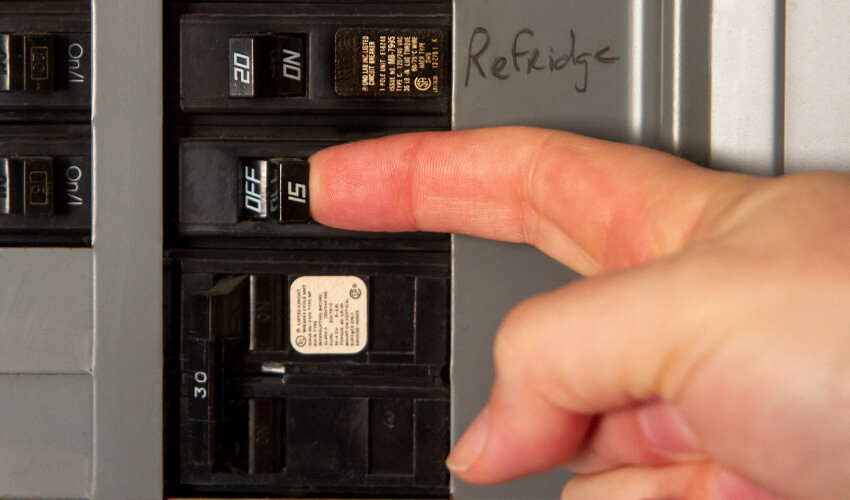Almost every feature and modern convenience in your El Paso home rely on electricity to meet your needs and make your life less stressful or complicated. However, most homeowners are unaware of some of the most crucial appliance electrical requirements they depend on every day for cooking, entertainment, and even climate-controlled comfort. Knowing which of these expensive devices require a dedicated circuit can help you plan upgrades and home additions and ensure your house provides adequate power and safety for these items.
What Is A Dedicated Circuit?
First, it is essential that you understand what a dedicated circuit is and why it is crucial for certain appliances. A dedicated circuit supplies power to only one appliance in your home. It also does not power any outlets. When you look at your home’s breaker box or electrical panel, you will see a breaker labeled for the dedicated appliance. Turning this breaker off cuts power only to the dedicated device.
The reason for this abundance of caution and a single circuit for certain appliances is an added level of safety for you, your home, and the appliance. In addition, it is a part of the NEC safety code. The appliances on dedicated circuits tend to be high electricity consumers that draw an extreme amount of power when turning on or in operation. Being on a dedicated circuit prevents electrical issues such as:
- Flickering lights
- Tripped breakers
- Appliance damage
- Electrical shocks
- Electrical fires
The Appliances That Require A Dedicated Electrical Circuit
During construction, the electrician who worked on your house was sure to have followed all of the national and local building codes to ensure that some specific appliances received a dedicated circuit. The list includes:
- The refrigerator
- Any stand-alone freezer
- The HVAC equipment
- Large cooking appliances like the oven, stove, or range
- The water heater
- The sump pump
- The microwave oven
- Any plasma televisions
- A swimming pool pump
- A swimming pool electric heater
- Any spa or hot tub
- Saunas
- Water feature pumps
- Washing machines
- Clothes Dryer
- Dishwasher
- Central vacuum systems
Other Recommended Considerations
The items listed above are the typical or minimum requirements for dedicated circuits. However, many other smaller devices and a few mobile devices are recommended to only operate on a dedicated circuit. The recommended items include:
- Window air conditioners
- Toasters
- Toaster ovens
- Hairdryers
- Portable space heaters
Signs That You Need A Dedicated Circuit
If you wake up each morning and hope that you can make a cup of coffee and some toast without tripping the breaker in your kitchen, you should be calling your local licensed electrician. While it might not be a constant occurrence, there is an overload on your kitchen electrical circuit, causing the breaker to trip. It might only happen when the ceiling fan, coffee maker, and toaster are all operating simultaneously. But regardless of the combination of appliances in use, you should not be tripping the breaker regularly.
What Are The risks Without Dedicated Circuits?
For the most part, your breakers trip when a circuit is overloaded. The breaker is a safety device that is in place to limit the potential damage from the excessive electricity demand. When an overload occurs once or only on rare occasions, there is little potential for harm. However, if the circuit continues to be overloaded, the excessive heat and overheating of the wire can cause the insulation to break down and even start a fire.
To schedule an evaluation of your home’s circuits or schedule installation for additional dedicated circuits, call (915) 221-8214. The licensed professionals at Secure Electrical Contractors will help you ensure that your home is safe from electrical fires.

